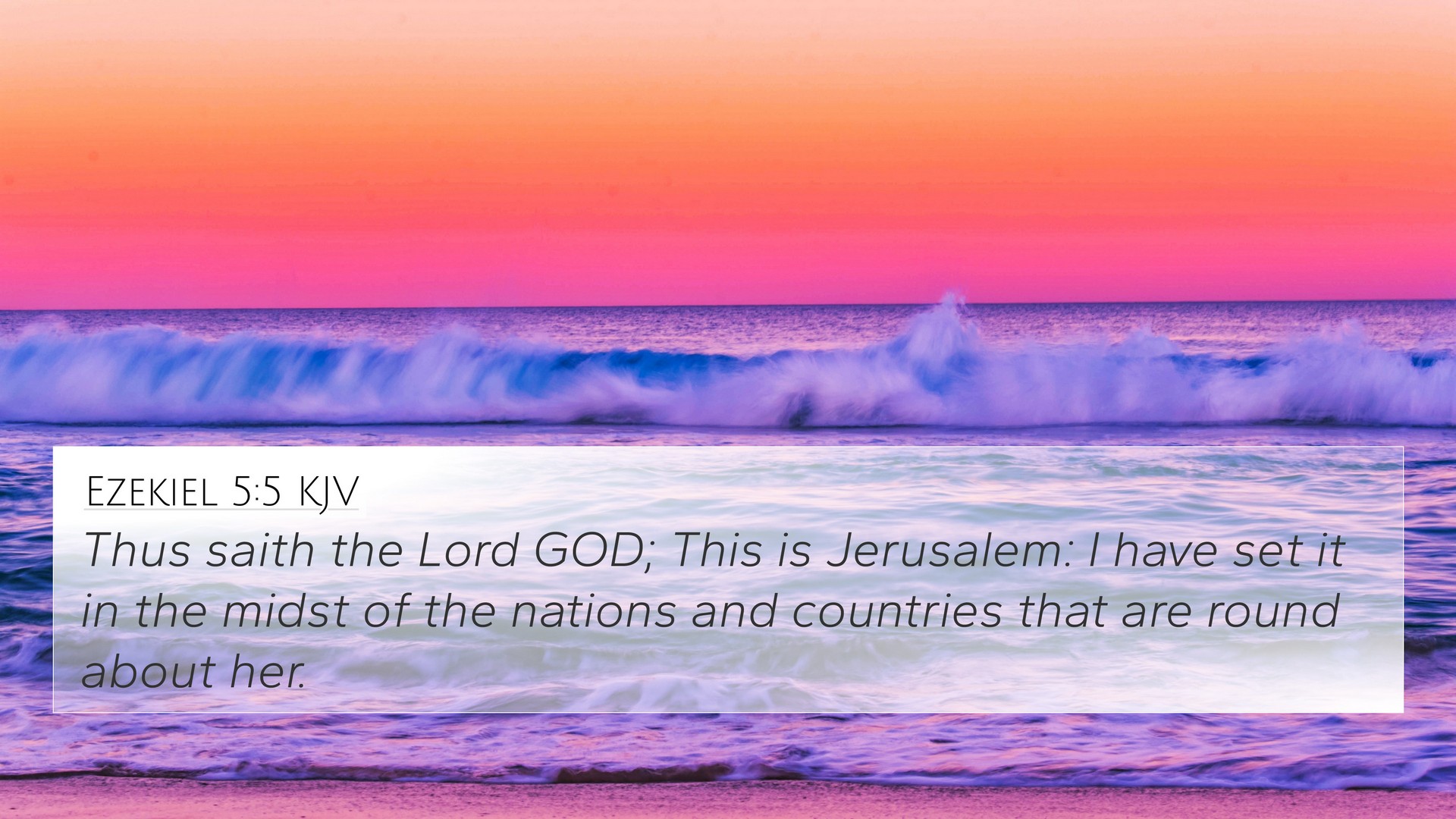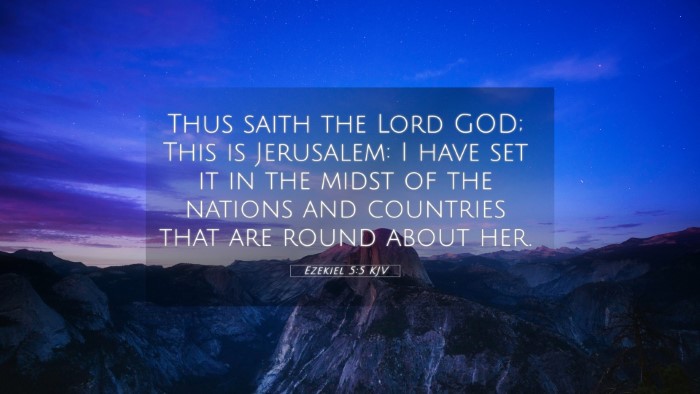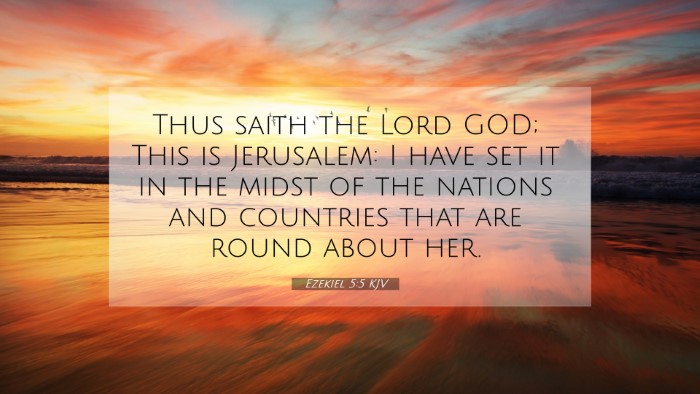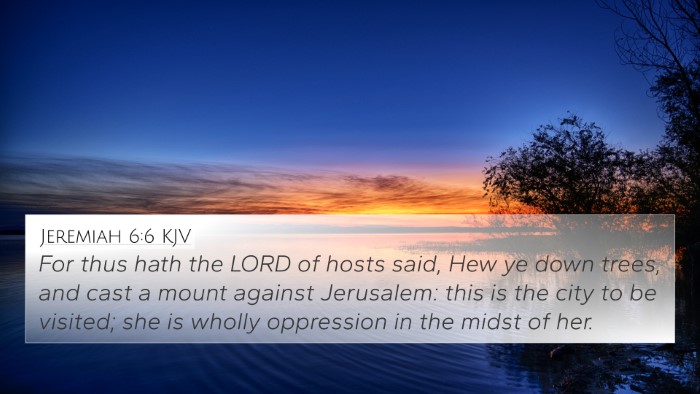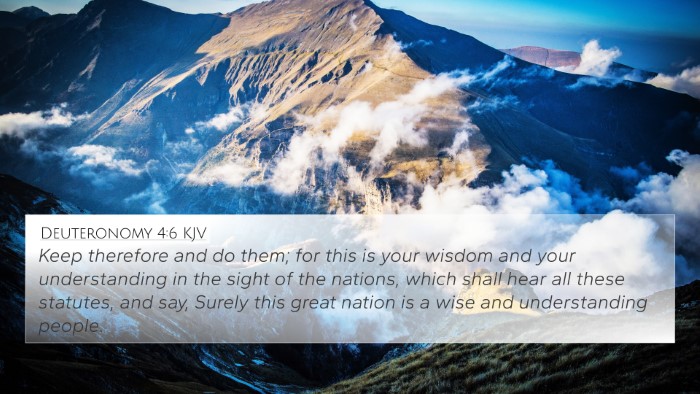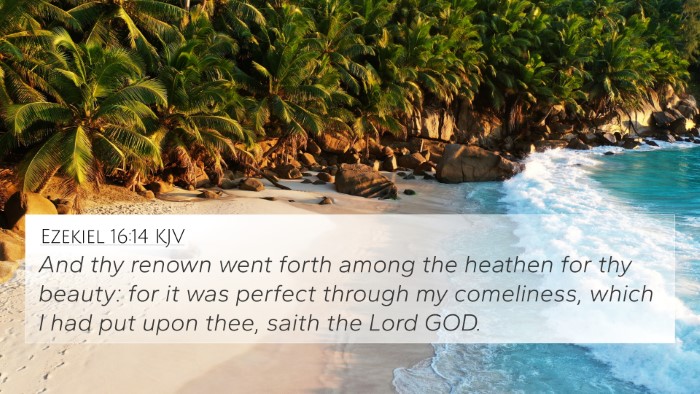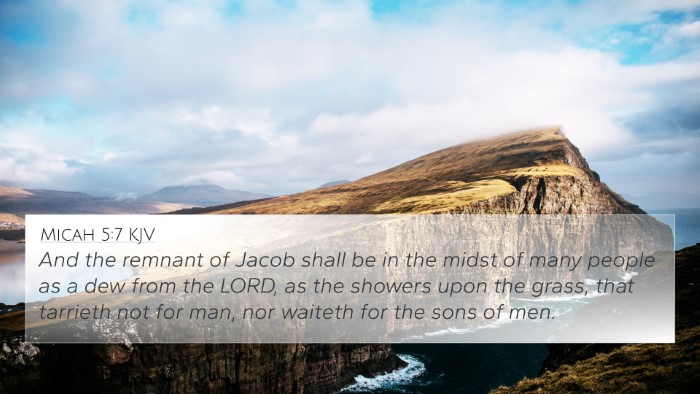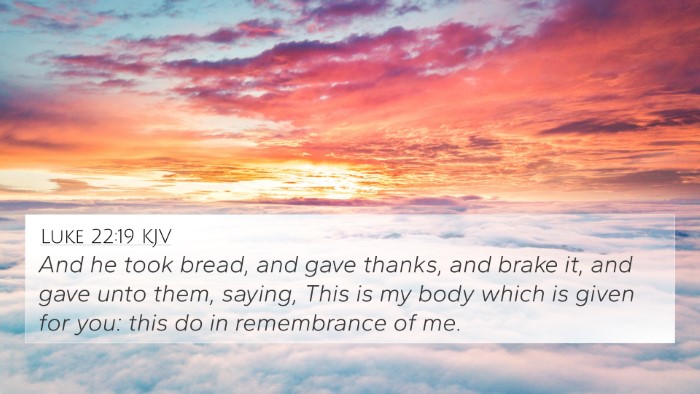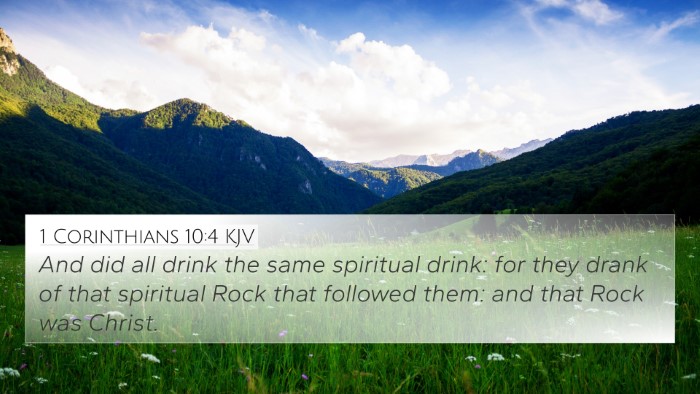Ezekiel 5:5 - Summary and Interpretative Insights
Ezekiel 5:5 states, "Thus saith the Lord GOD; This is Jerusalem: I have set it in the midst of the nations and countries that are round about her." This verse serves as a pivotal declaration marking Jerusalem's significance in God's plan.
Meaning and Interpretation
The verse communicates profound themes found throughout biblical texts regarding identity, calling, and the divine purpose for Jerusalem. Various commentaries provide rich insights that can deepen our understanding:
- Matthew Henry: Henry interprets this verse as indicating Jerusalem’s central role in the collection of nations. He emphasizes that it was intended to be a light among the nations, showcasing God's presence and glory.
- Albert Barnes: Barnes explains that God’s choice of Jerusalem signifies its importance as a place for divine revelation and worship. He further notes that its geographical location among surrounding nations implies its role as a mediator of God’s truth to the world.
- Adam Clarke: Clarke posits that Jerusalem's position "in the midst" suggests not merely proximity but also its call to lead others. Clarke highlights the idea of calling, which resonates with the New Testament understanding of the Church's mission.
Thematic Connections
Building on these insights, we can reflect on additional biblical themes related to Ezekiel 5:5:
- Divine Sovereignty: This verse underscores God's sovereign choice in establishing Jerusalem, connecting it with Isaiah 2:2, where Jerusalem is described as the mountain of the Lord’s house.
- God's Immanence: The reference to Jerusalem cleverly ties in with Zechariah 2:10, which speaks of God dwelling in the midst of His people.
- Prophetic Significance: The verse links to Luke 2:34, where Simeon refers to Jesus as destined for the rise and fall of many in Israel, reflecting on Jerusalem's pivotal narrative in God's redemptive history.
- Judgment and Restoration: Consider Jeremiah 3:17, which expresses the expected future glory of Jerusalem when it serves as a throne of the Lord, showcasing the broader narrative of hope despite looming judgment in Ezekiel.
- Covenantal Identity: This ties to Psalm 87:3, which celebrates Zion's chosen place in the heart of God, emphasizing the distinct identity bestowed upon the city through covenant.
Inter-Biblical Dialogue
Examining Ezekiel 5:5 in the context of interconnected scriptures enriches our comprehension:
- Matthew 5:14 - The Church as a city set on a hill highlights continuity in the theme of visibility and witness.
- Hebrews 12:22 - Referring to the heavenly Jerusalem draws a parallel to the earthly call represented in Ezekiel.
- Revelation 21:2 - The New Jerusalem imagery underscores God's ultimate plan for restoration and unity among nations.
So What? Practical Application
For readers exploring the meanings of this verse, it serves as a reminder of the church's great commission. The positioning of Jerusalem at the center of nations challenges believers today:
- To recognize their identity as part of God's chosen people, embodying His presence.
- To embrace the call to witness and reflect God’s character in the world.
- To engage in missions, understanding that God's plan encompasses all nations and peoples.
Tools for Cross-Referencing
As you explore more about cross-references, consider using these methods:
- Utilize a Bible concordance to find key words and themes related to Ezekiel 5:5.
- Engage with a cross-reference guide or study Bible to follow thematic links and context.
- Incorporate Bible cross-reference systems which highlight interconnections between Old and New Testament texts.
Conclusion
Ezekiel 5:5 invites deep reflection on God's sovereign purpose for Jerusalem and its implication for both historical Israel and the contemporary church. By examining this verse alongside related scriptures through careful cross-referencing, believers can uncover layers of meaning that enhance both personal study and communal worship.
Cross-References for Further Study:
- Isaiah 2:1-5
- Jeremiah 3:17
- Zechariah 2:10-12
- Matthew 5:14
- Hebrews 12:22-24
- Revelation 21:2
- Psalm 87:3
- Luke 2:34
